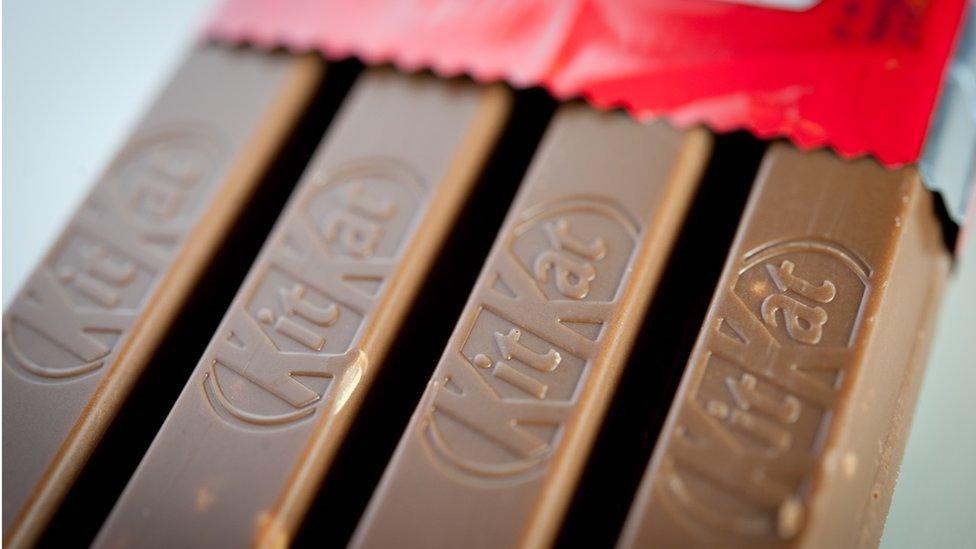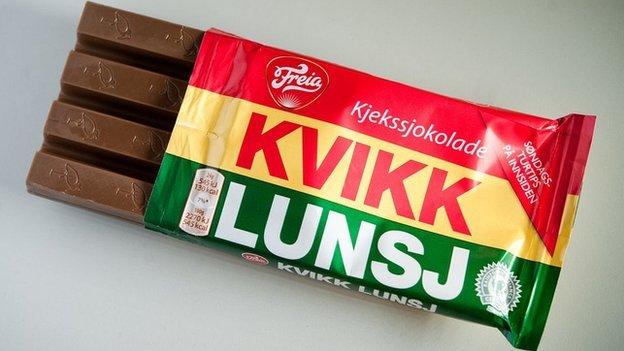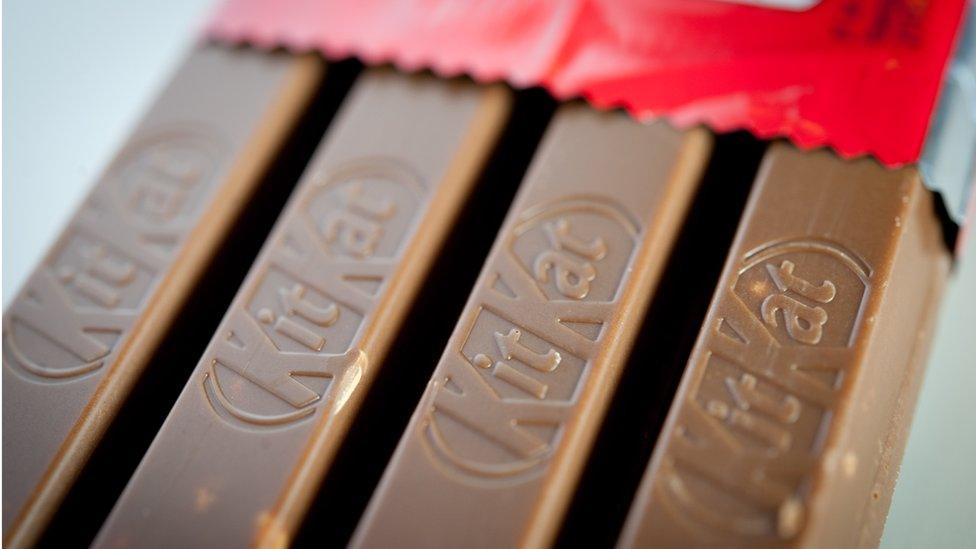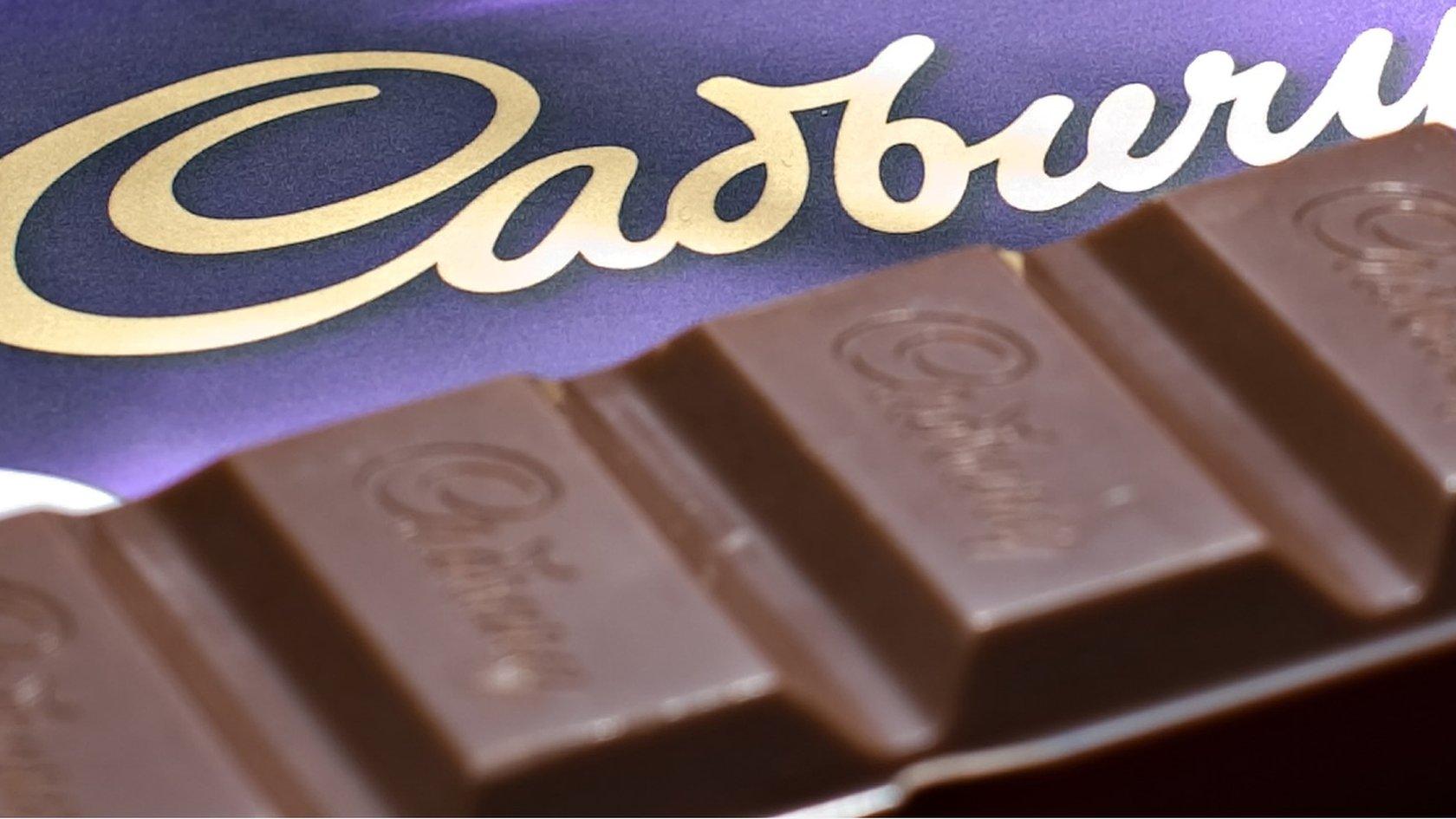Nestle to appeal in KitKat battle
- Published

Confectionery giant Nestle will appeal against a High Court decision that denies it the right to trademark its four-fingered KitKat in the UK.
It is the latest ruling in a long running battle with Cadbury.
Nestle wants to stop rivals producing a similar shaped bar.
But the court agreed with Cadbury that the shape was not distinctive enough for consumers to identify all such bars as KitKats.
Nestle said in a statement: "KitKat is much loved and the iconic shape of the four-finger bar, which has been used in the UK for more than 80 years, is well known by consumers.
"We believe that the shape deserves to be protected as a trade mark in the UK and are disappointed that the court did not agree on this occasion."
Its case was not helped by the existence of a similar Norwegian bar, called Kvikk Lunsj, which means 'quick lunch' and has been around since 1937.

Norway's "Kvikk Lunsj" looks similar to the KitKat and is available in some parts of the UK
In September last year the company failed to persuade European judges of its arguments.
The European Court of Justice said that the company had to demonstrate the public relied on the shape alone to identify the snack.
They concluded this was difficult to prove if goods also showed a brand name such as KitKat.
Nestle has experience of trying to register difficult trade marks.
It took more than 40 years for it to register the slogan "Have a Break" as a trade mark, finally succeeding in 2006.
Chocolate wars
Nestle first tried to trademark the shape of the four-fingered chocolate bar in 2010, but its attempts were opposed by Cadbury.
The two have also battled over other trademarks. In 2013 Nestle blocked Cadbury's attempts to register the shade of purple used in the packaging of Dairy Milk.
Now it would appear Cadbury, which is owned by US company Mondelez International, has scored a significant but not final victory in the continuing chocolate war.
It has always argued the shape alone was not distinctive enough for consumers to associate it with the rival snack.
Nestle has not sought to trademark the two-fingered bar.
- Published5 June 2015

- Published4 October 2013

- Published11 June 2015
